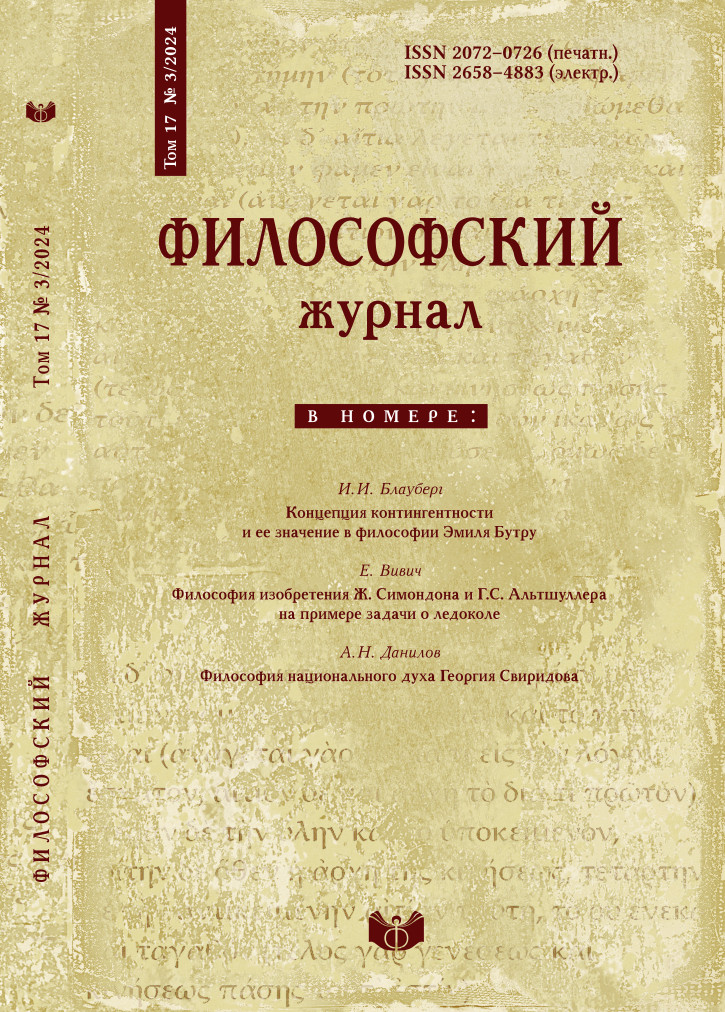The parodic character of posthistory
DOI:
https://doi.org/10.21146/2072-0726-2024-17-3-121-134Keywords:
history, posthistory, parody, the social, the socio-technical, reduction of the social to the socio-technical, the political sphere, hypertrophy of the political sphereAbstract
The philosophical understanding of the end of human history has a long tradition and, despite many different interpretations, gravitates towards two opposite versions. The optimistic version is symbolically presented in G.W.F. Hegel’s concept, while the pessimistic one can be found in the latest conceptual essays of the “late” V.S. Solovyov. This text is structured in a tonality that partly echoes that of the latter. Methodologically, it is based on the subject-centered strategy of existential philosophy and the variation of dialectics associated with it. Thematically, it aims to reflect on the state of posthistory, a term that, according to the author, by virtue of its prefix “post-”, captures not only temporal shades of meaning (“after”), but also parodic ones. Every post-something parodies its own root, speculatively enhancing some meaningful aspects of it and hiding others. Posthistory diminishes the social for the sake of the socio-technical and hypertrophies the political, which is already dominant in the historical process and its standard perception. The author focuses on the intellectual support of well-defined trends in modern social life and critically analyzes theoretical constructions that fully (B. Latour) or partially (J.O. de La Mettrie) legitimize the reduction of the social to the socio-technical and subordinate, directly (K. Schmitt) or indirectly (S. Newman), the social to the political. While recognizing the weakness of modern society and agreeing with the importance of individual resistance to the negative tendencies that dominate it, the author emphasizes the positive significance of the individual’s self-identity – in contrast to post-structuralism and post-anarchism – resulting from the individual’s power over himself. At the same time, the individual effort is considered insufficient to address the human condition. The prognosis for the posthistorical future is therefore pessimistic. But fortunately, earthly life – human life itself – is not limited to history and posthistory.






